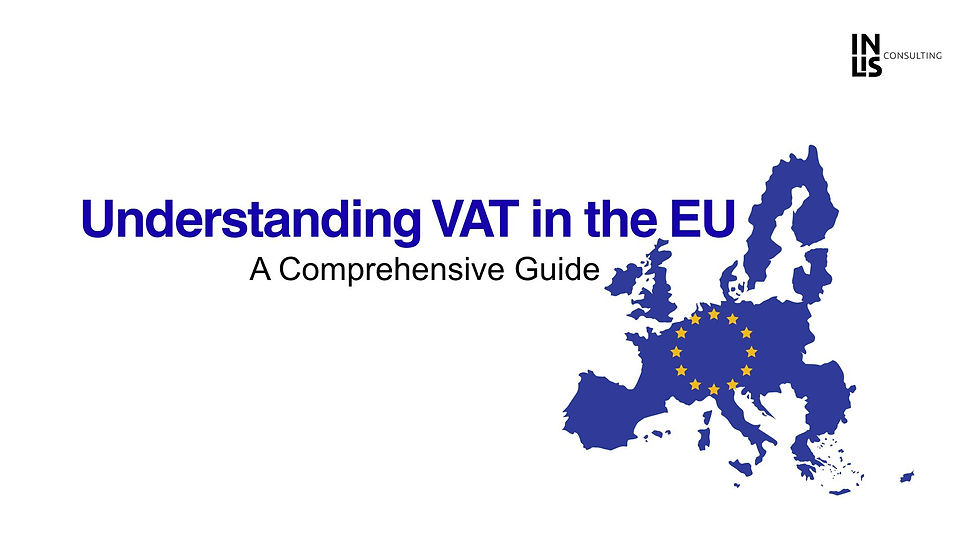Selling Your U.S. Home After Moving to Portugal
- INLIS Consulting
- Sep 26, 2025
- 3 min read
Selling a U.S. home after moving to Portugal? How U.S. and Portuguese tax laws work, how the U.S.–Portugal treaty applies, and whether NHR status can save you from double taxation.

Understanding U.S. Tax Rules When Selling a Home
Even after moving to Portugal, U.S. citizens (and some Green Card holders) remain subject to U.S. tax on worldwide income. This includes the sale of real estate in the U.S.
Section 121 – The Home Sale Exclusion
Under Internal Revenue Code Section 121, you can exclude up to:
$250,000 of gain if single
$500,000 of gain if married filing jointly
Conditions:
You must have owned and lived in the home for 2 of the last 5 years before selling.
You cannot have used this exclusion in the past 2 years.
Example | Purchase Price | Sale Price | Gain | Exclusion | Taxable Gain |
Married couple, lived in home 3 years | $400,000 | $700,000 | $300,000 | $500,000 | $0 |
Single, moved out 4 years before the sale | $300,000 | $500,000 | $200,000 | $250,000 | $200,000 (not eligible for exclusion) |
Portugal’s Tax Rules After Moving
When moving to Portugal, you also become subject to Portuguese tax rules. Here are the main ones:
Non-Habitual Resident (NHR) Regime
Available for 10 years to new residents who haven’t lived in Portugal for the past 5 years.
Many foreign-sourced capital gains can be exempt in Portugal if another country (like the U.S.) has taxing rights.
Double Tax Treaty Between the U.S. and Portugal
Ensures you are not taxed twice on the same gain.
Usually, the U.S. taxes first, and Portugal either exempts the gain or provides a tax credit.
Example Scenarios
Scenario | U.S. Tax Outcome | Portugal Tax Outcome | Net Effect |
Used Section 121, NHR in Portugal | Gain fully excluded in U.S. | Exempt in Portugal under treaty | No tax in either country |
No Section 121, NHR applies | U.S. taxes gain at long-term capital gains rate (15–20%) | Exempt in Portugal | Only U.S. tax applies |
No Section 121, not under NHR | U.S. tax on gain | Portugal may also tax at progressive rates | Risk of double tax unless treaty applies |
Step-by-Step Checklist Before Selling
Confirm U.S. Tax Status – Citizen, Green Card holder, or nonresident?
Check Section 121 Eligibility – Did you live in the home for 2 of the last 5 years?
Calculate Gain – Purchase price + improvements – selling costs.
Apply Exclusion – Subtract $250k/$500k if eligible.
Review NHR Status – Check if you qualify in Portugal.
Use Treaty Protections – Avoid paying twice.
Keep Documentation – Receipts, records of residence, and improvements.
Consult a Tax Expert – Cross-border advisors can optimize your outcome.
Pros and Cons of Selling After Moving to Portugal
Pros | Cons |
Large U.S. tax exclusions available | Lose Section 121 if too much time has passed |
Treaty prevents double taxation | More complex reporting obligations |
NHR may exempt foreign gains | Risk of Portuguese taxation without NHR |
Frees up funds for reinvestment in Portugal | State/local U.S. taxes may still apply |
Legal References
Internal Revenue Code Section 121 (Home Sale Exclusion)
Treasury Regulations (ownership and use tests)
U.S.–Portugal Double Tax Treaty
Portuguese Income Tax Code & NHR Regime
Final Thoughts
Selling your U.S. home after moving to Portugal can either be tax-free or costly, depending on timing and your residency status. If you qualify for the U.S. exclusion and the Portuguese NHR regime, you may avoid tax in both countries.
The safest strategy is to plan, calculate your potential liability in both systems, and work with a tax advisor who understands cross-border rules.




Comments